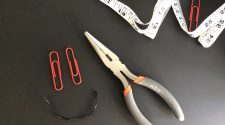Entrepreneurs developing new medical devices and technologies for use in health care settings will learn how to get their innovations noticed during a free teleconference with industry leaders.
The program “Demystifying Pathways to Innovation Partnerships with Health Systems” will be held virtually on Tuesday, Aug. 25 from 10 a.m. to 12 p.m.
The event will share strategies for entrepreneurs looking to partner with health care organizations to develop new products and technologies, explore research opportunities, streamline pilot studies and more.
The event, which will be held via Zoom, is presented by the Massachusetts Medical Device Development Center (M2D2) – a startup incubator operated by UMass Lowell and UMass Medical School – and Texas Medical Center Innovation, in conjunction with the U.S. Department of Health and Human Services’ Biomedical Advanced Research and Development Authority (BARDA) through its Division of Research, Innovation and Ventures (DRIVe) network.
This event will be a highly engaging session for entrepreneurs to hear directly from federal stakeholders and decision-makers at the country’s top hospitals and medical-device manufacturers about next-generation solutions to improve health care. We look forward to fostering the networking opportunities and partnerships that will result,”
Mary Ann Picard, Director of Operations, Massachusetts Medical Device Development Center
Speakers during the event are expected to include leaders from BARDA, Houston Methodist Hospital, Johnson & Johnson Innovation, UMass Memorial Health Care and the U.S. Department of Veterans Affairs, among others.
Topics to be covered in the session include a look at the unmet needs in health care, particularly during the COVID-19 era; how to launch collaborative partnerships; how to introduce new products and technologies into hospital and health care settings; how stakeholders in higher education and state and federal government agencies can assist entrepreneurs and more.
Source:
University of Massachusetts Lowell















